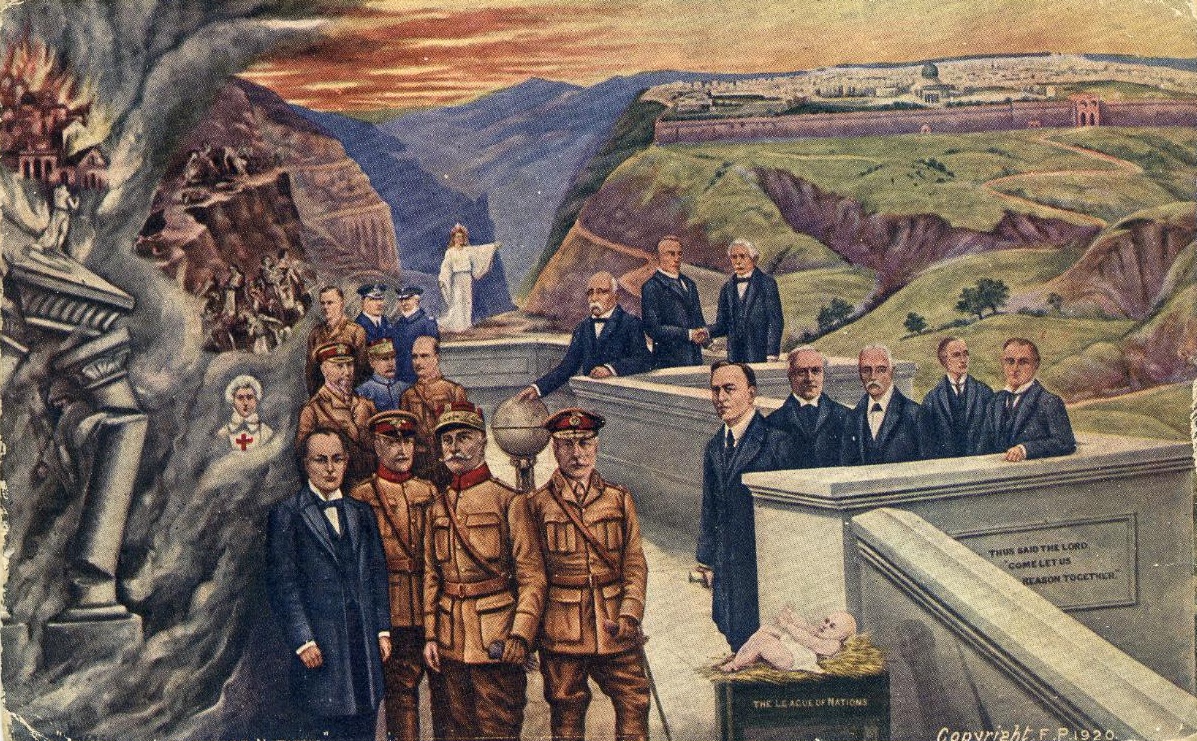Conference abstract:
The historiography of international law of the 19th and 20th centuries has grown rapidly in the last decades around the excellent work of the legal scholar Martti Koskenniemi and the new Journal of the History of International Law. However, this new wave of scholarship focuses primarily on intellectual history based on biographical studies of leading jurists. Generally, scholars of international legal history have not followed in the footsteps of recent historiographical developments in the fields of human rights or EU law, where historians have systematically used archival resources to go beyond intellectual history and explore the actual legal practice situated in different societal contexts. As a result, historiography of international law has to some extent neglected how the rise of international organisations, and in particular the foundation of the League of Nations (LoN) system, created new legal techniques and shaped the development of international law. Turning to the new historiography of international organisations a similar pattern emerges. While historians in the last decade have fundamentally reassessed the history of the League of Nations, they have not explored its legal dimension. The same goes for recent studies of the technical international organisations that were established from the mid-19th century onwards and became part of the LoN system after 1919. This conference wants to promote a new legal history that explores how the LoN system influenced the development of international law from 1919-1945 based on systematic research of international, state and private archives and a contextual approach to the object of study. The conference is meant to be a first meeting between researchers sharing the agenda outlined above. The aim is that methodological challenges can be identified and the contextual approach to legal history can be further refined. There will be a follow-up conference by the end of 2020 aimed to prepare the papers for a final publication with a leading international publishing house. The conference is open for participation of the general public. Please contact: Thomas Storgaard th.storgaard@hum.ku.dk
Program:
THURSDAY June 13
9.30-10.15 Welcome by Morten Rasmussen
10.15-11.45
The League of Nations system and International Law
- Morten Rasmussen (Associate Professor, University of Copenhagen), The History of the Legal Section of the League of Nations, 1919-1925
- Aden Knaap (Doctoral student, Harvard University), The Court of the Future: The Rise and Fall of World Courts, 1940-45
Discussant: Marcus Payk (Professor, Helmut Schmidt University Hamburg)
11.45-13.00 LUNCH
13.00-15.15
The League of Nations and International Law seen from state actors
- Tomoko Akami (Associate Professor, Australian National University): Making imperial polities anomaly: the Japanese Association of International Law and the League of Nations
- Andrei Mamolea (PhD, Visiting Fellow at the Max Planck Institute for European History, Frankfurt): The Uruguayan approach to International Law during the League of Nations Era
- Thomas Storgaard (Doctoral student, University of Copenhagen): Unlocking the technology of international law within the German Foreign Office, 1914 – 1920
Discussant: Haakon Ikonomou (Associate Professor, University of Copenhagen)
15.15-15.45 COFFEE
15.45-17.15
The shape of international law and legal discourse
- Megan Donaldson (Junior Research Fellow, University of Cambridge): The Edges of Law: Boundaries of Legal Discourse in the League of Nations
- Leonard Smith (Professor, Oberlin College & Conversatory), Sovereignty and mandates in legal discourse
Discussant: Jan Lemnitzer (Assistant Professor, University of Southern Denmark)
18.00-21.00 DINNER Restaurant Marv og Ben
14 June
8.30-9.00 Publication plans by Morten Rasmussen
9.00-10.30
Lawyers and legal networks I
- Henri de Waele (Professor, Radboud University): A New League of Extraordinary Gentlemen? The Professionalisation of International Law Scholarship and Practice in the Netherlands, 1919-1940
- Jens Wegener (Post.doc., Ruhr-Universität Bochum): International Lawyers of Peace: The League, Philanthropy and the Making of a Transnational Social Space
Discussant: Jean-Michel Guieu (Associate Professor, Université de Paris 1 Panthéon-Sorbonne)
10.30-10.45 COFFEE
10.45-12.15
Lawyers and legal networks II
- Karin van Leeuwen (Assistant Professor, University of Maastricht): Promoting a 'common international concept' of international law: the Hague Academy and international law teaching, 1923-1940
- Rasmus Søndergaard (Post.doc., Georgetown University): International Law and the League: The Life and Work of Manley O. Hudson
Discussant : Morten Rasmussen (Associate Professor, University of Copenhagen)
12.15-13.30 LUNCH
13.30-14.45
League of Nations policies and international law I
- Omer Aloni (Post.doc. University of Potsdam): Early Environmentalism and Diplomacy at the Birth of Modern International Law: The League of Nations, 1919-1939
- Nicholas Mulder (Doctoral student, Columbia University): League of Nations Sanctions and the Creation of Public War, 1925-1931
Discussant: Daniel Maul (Associate Professor, Oslo University)
14.45-15.15 COFFEE
15.15-16.45
League of Nations policies and international law II
- Marilena Papadaki (Scientific Associate, K. Koufa Foundation): The Protection of Individual and Minority Rights within the LoN Framework: the case of Nicolas Politis (1872-1942)
- Michel Erpelding, Developing a systematic case-law on individual and minority rights: the role of Felix Calonder (1863-1952) as President of the Mixed Commission for Upper Silesia (1922-1937)
Discussant: Jan Lemnitzer (Assistant Professor, University of Southern Denmark)
17.00-18.00
Conclusion
Marcus Payk (Professor, Helmut Schmidt University Hamburg), Jan Lemnitzer (Assistant Professor, University of Southern Denmark) and Morten Rasmussen (Associate Professor, University of Copenhagen)










